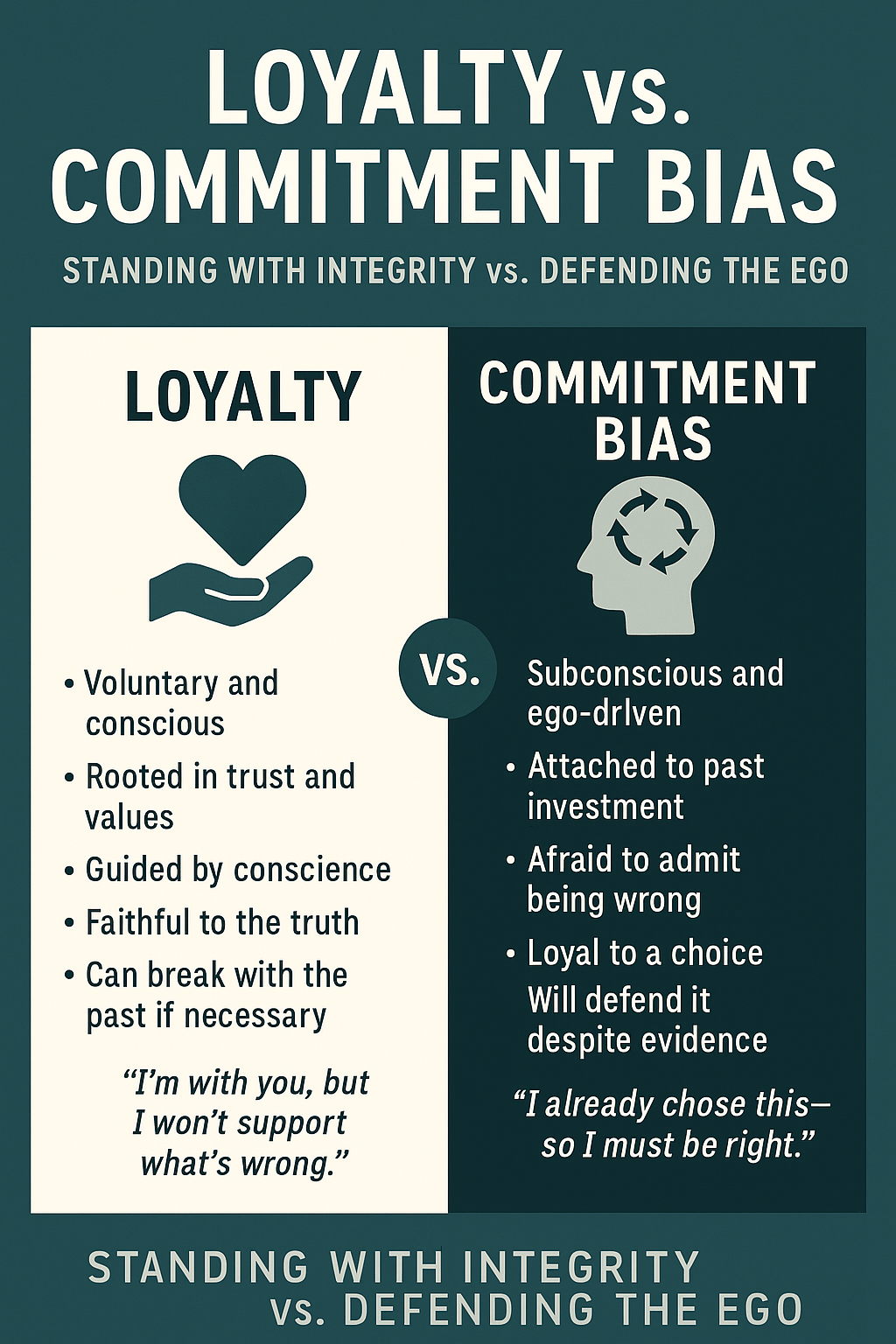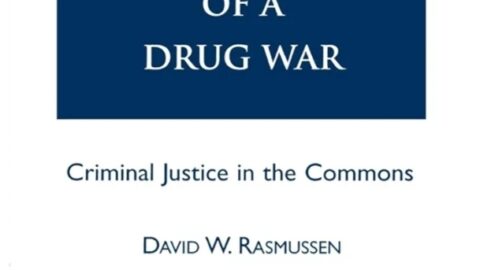Loyalty and commitment bias may look similar on the surface—both involve standing by someone or something—but they come from very different sources and lead to very different outcomes.
Loyalty: A Virtue Rooted in Integrity
- Voluntary and conscious.
- Based on trust, shared values, and mutual respect.
- Can be broken or revised if the truth requires it.
- Rooted in principled consistency, not blind allegiance.
- Example: Staying loyal to a friend through hardship—but calling them out when they do wrong.
Loyalty says: “I’m with you, but I won’t support what’s wrong.”
Commitment Bias: A Psychological Trap
- Subconscious and ego-driven.
- Based on past investment, public declarations, or identity attachment.
- Defends a choice even when it’s proven wrong, just to avoid admitting error.
- Rooted in fear of loss, shame, or inconsistency.
- Example: Defending a failed political leader just because you once voted for them and don’t want to appear “wrong.”
Commitment bias says: “I already chose this—so I must be right.”
Key Differences:
| Feature | Loyalty | Commitment Bias |
|---|---|---|
| Motivation | Love, integrity | Ego, consistency |
| Rooted in | Values | Identity attachment |
| Open to change? | Yes, if truth requires | Rarely—change feels like betrayal |
| Guided by | Conscience | Fear of being wrong |
| Healthy outcome? | Builds trust and resilience | Leads to stagnation and denial |
Conclusion:
Loyalty is a moral strength—commitment bias is a psychological blind spot.
True loyalty may require us to break from past commitments in order to stay faithful to the truth.






